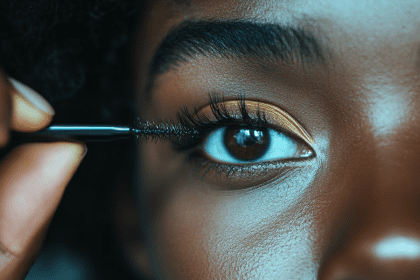Everyone has that person in their life – the one who never seems to fall apart, who handles every crisis with calm competence, who somehow always has the right words and the emotional bandwidth to support everyone else. If you’re reading this and thinking “that’s me,” then you probably already know the exhausting weight of being the designated strong one in every relationship, family, and situation.
What most people don’t realize is that being perpetually strong isn’t a superpower – it’s often a prison that prevents authentic connection and genuine support. The role of “the strong one” comes with an invisible but crushing emotional tax that compounds over time, creating isolation, resentment, and burnout that few people recognize or address.
The most tragic part is that people who always play the strong role often do so because they learned early that their worth was tied to their ability to handle things, help others, and never need help themselves. This creates a cycle where strength becomes both identity and trap, making it increasingly difficult to break the pattern even when it’s destroying your emotional wellbeing.
You’re carrying everyone else’s emotional weight
When you’re always the strong one, you become the emotional dumping ground for everyone in your life. Friends call when they’re in crisis, family members lean on you during difficult times, and colleagues turn to you when work stress becomes overwhelming. While being supportive feels good initially, constantly absorbing other people’s emotional turmoil takes a serious toll.
The problem isn’t that you care about people or want to help – the problem is that emotional labor becomes a one-way street where you’re always giving and rarely receiving. You become so accustomed to being the supporter that you forget you might need support too, and others become so used to your strength that they don’t even think to offer reciprocal care.
This emotional absorption doesn’t just stay at the surface level. When you consistently take on other people’s stress, anxiety, and problems, your nervous system starts carrying that load 24/7. You might find yourself lying awake at night worrying about someone else’s situation, feeling anxious about problems that aren’t even yours, or carrying anger and frustration that belongs to other people.
The cumulative effect is that you’re essentially living multiple emotional lives simultaneously – your own plus pieces of everyone else’s. This emotional overload creates a chronic state of stress that affects your physical health, mental clarity, and ability to enjoy your own life.
Your own needs become invisible, even to you
One of the most insidious effects of always being the strong one is that you gradually lose touch with your own emotional needs and desires. You become so focused on managing everyone else’s feelings and problems that you stop paying attention to what you actually want or need.
This isn’t just about putting others first occasionally – it’s about a complete disconnection from your own inner experience. You might find that when someone asks what you want or how you’re feeling, you genuinely don’t know because you’ve spent so much energy managing external situations that your internal world has become foreign territory.
The strong one role often requires suppressing your own emotions to maintain the stability that others depend on. Over time, this emotional suppression becomes automatic, making it difficult to access your feelings even when you’re alone. You might feel numb, empty, or disconnected from yourself without understanding why.
This self-neglect extends beyond emotions to practical needs too. You might consistently sacrifice your time, energy, and resources for others while ignoring your own health, goals, and happiness. The pattern becomes so ingrained that self-care feels selfish or foreign.
Relationships become fundamentally unbalanced
When you’re always the strong one, your relationships inevitably become lopsided arrangements where you provide emotional support, practical help, and stability while receiving little in return. This imbalance might feel normal because it’s what you’ve always known, but it prevents the development of truly intimate, reciprocal connections.
People in your life may genuinely care about you, but they’ve learned to see you as the problem-solver rather than someone who might have problems. They’re not necessarily being selfish – they’ve simply adapted to the role you’ve consistently played and may not even realize that you need support too.
This dynamic creates a lonely paradox where you’re surrounded by people who depend on you but don’t really know you. Your relationships revolve around your ability to be helpful rather than authentic connection based on mutual understanding and support.
The imbalance also prevents others from developing their own emotional resilience and problem-solving skills. When you consistently step in to fix things, you inadvertently rob people of opportunities to grow stronger themselves, creating dependencies that serve no one well long-term.
Resentment builds in dangerous silence
The emotional cost of always being strong often manifests as a slow-burning resentment that you might not even recognize at first. You might feel irritated when people contact you with problems, exhausted by social interactions that used to energize you, or increasingly cynical about people’s motivations.
This resentment is particularly toxic because you probably feel guilty about having it. After all, you chose to be helpful, you pride yourself on being reliable, and you genuinely care about the people in your life. The anger feels contradictory to your values and identity, creating internal conflict that adds to your emotional burden.
The resentment often goes unexpressed because admitting that you’re tired of being strong challenges the image that both you and others have of who you are. Speaking up about your needs or setting boundaries feels like betraying your role or letting people down.
This suppressed resentment can manifest in passive-aggressive behavior, sudden emotional outbursts, or a gradual withdrawal from relationships. You might find yourself becoming increasingly critical or impatient with others, even though the real problem is that your own needs aren’t being met.
Your identity becomes trapped in strength
When you’ve been the strong one for years or decades, your sense of self becomes deeply intertwined with that role. Your worth feels tied to your ability to handle things, help others, and maintain composure under pressure. This identity fusion makes it terrifying to show vulnerability or admit that you’re struggling.
The fear of disappointing people who depend on your strength can keep you trapped in the role long after it’s stopped serving you. You worry that people will think less of you, abandon you, or lose respect for you if they see you as anything other than completely capable and put-together.
This identity trap also prevents you from exploring other aspects of yourself. You might have interests, dreams, or personality traits that never get expressed because they don’t fit the strong, reliable image you’ve cultivated. Parts of your authentic self remain hidden even from you.
Breaking free from this identity requires grieving the loss of how others see you and how you see yourself. It means accepting that some people might be disappointed when you start setting boundaries or expressing needs, and that your relationships will need to evolve to accommodate a more authentic version of yourself.
Physical health pays the price
The chronic stress of carrying everyone else’s emotional burdens takes a significant toll on your physical health. Your body can’t distinguish between your own stress and the stress you absorb from others, so it responds to all of it as if it’s a personal threat requiring constant vigilance.
This chronic activation of your stress response system can lead to a host of physical symptoms including headaches, digestive issues, sleep problems, muscle tension, and frequent illnesses. Your immune system becomes compromised from constantly operating in crisis mode, making you more susceptible to infections and slower to recover from illness.
The emotional suppression required to maintain your strong facade also affects your physical health. Suppressed emotions don’t disappear – they get stored in your body as tension, creating physical manifestations of emotional distress that might seem unrelated to your role as the strong one.
Sleep often becomes elusive because your mind can’t shut off from processing everyone else’s problems along with your own. You might find yourself lying awake replaying conversations, worrying about other people’s situations, or feeling wired despite being exhausted.
Breaking the pattern requires conscious rebellion
Getting out of the strong one trap requires deliberate action that feels counterintuitive and uncomfortable at first. You need to start saying no to requests for help, expressing your own needs, and allowing others to see you as imperfect and human.
This process often feels like betraying yourself and everyone who depends on you. The guilt can be overwhelming, and people might initially react negatively to your changed boundaries. Some relationships might not survive the transition from imbalanced to reciprocal, and that loss can be painful even when it’s ultimately healthy.
Start small by practicing vulnerability in low-stakes situations. Share something you’re struggling with, ask for help with a minor issue, or admit when you don’t have all the answers. These small acts of authenticity help you rebuild comfort with being human rather than superhuman.
Setting boundaries is crucial but challenging. You need to learn to distinguish between helping others and enabling their dependency on you. Real help often involves stepping back and allowing people to develop their own coping skills rather than consistently rescuing them.
Rediscovering yourself beyond strength
The journey away from being perpetually strong involves rediscovering parts of yourself that have been buried under the weight of everyone else’s needs. This might mean exploring interests you’ve neglected, expressing emotions you’ve suppressed, or simply spending time alone without feeling guilty about not helping someone.
Give yourself permission to be messy, confused, sad, or angry without immediately trying to fix or hide these feelings. Learning to sit with your own emotions without rushing to solve them is a crucial skill that the strong one role often prevents you from developing.
Consider seeking professional support to help navigate this transition. A therapist can provide the neutral, supportive relationship you probably haven’t experienced in other areas of your life, helping you learn to receive care rather than just provide it.
Creating space for authentic connection
As you step away from the strong one role, you create opportunities for more genuine relationships based on mutual support rather than one-sided caregiving. Some people in your life will rise to meet you in this more balanced dynamic, while others might fade away.
The relationships that survive and thrive through this transition become deeper and more satisfying because they’re based on authentic connection rather than utility. You get to experience being truly known and supported, not just appreciated for what you can do for others.
This shift also allows the people in your life to develop their own strength and resilience. When you stop being the solution to everyone’s problems, you give them opportunities to grow and discover their own capabilities. This ultimately creates healthier, more empowered relationships for everyone involved.

















